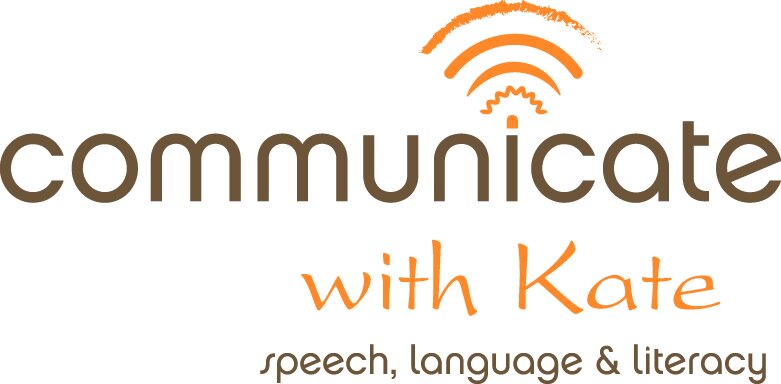Using Your Parenting Superpowers to Help your Little Ones Communicate!
If you’re a parent (like me), I’m sure you’re wondering about the effects of this global pandemic (both short and long term) on our children’s development, whether that’s social, emotional, academic/cognitive or all of the above. With limited, changed or possibly no access to our regular daycares/preschools/schools/classes/therapies, I know so many parents out there are worried about their kiddos in whatever ‘critical development’ period they’re going through.
In particular, we look very closely at those developmental milestones in those early years (think ages 0-5) and wonder, is my child on track? As a speech pathologist my professional world revolves around communication, speech/language and social development so I wanted to offer up a few nuggets of advice. I’m writing today to let you all in on a little secret. You have more knowledge and, might I add, ‘superpowers’ to support your child than you ever knew! For those of you with young children who are just learning how to communicate, both verbally and nonverbally, this one’s for you!
I want to talk a bit about the power of really ‘tuning in’ to our kids. Children, in general, learn through osmosis – absorbing everything they see and hear around them. I know from working in this field that children learn how to communicate the same way – they watch, they listen, they play, they imitate, they experience. I also know that the QUALITY OF THE INTERACTION with caregivers has a direct and very powerful impact on the language learning of the child! So here are a few tips to bring out the Communication SuperHero in you as you support your little ones on their communication path. . .
Watch and listen more, talk less, let your little one lead
For our early communicators who either have no words or very few words, this is especially critical. When we watch our children in play, they show us so much! If you have a ‘plan’ to build a block tower but your little one just can’t get enough of the new dump truck, then I say ‘dump’ your plan and really tune into what your child is interested in. Once you see what they’re interested in, you can join into THEIR play. When you let them take the lead you can get them ‘hooked’ not just on that dump truck, but more importantly on YOU playing with them and the dump truck. It’s okay to take the backseat sometimes and play is the perfect opportunity to do so.
Kids, like adults, need to have a reason to communicate. The first step in that is to find out what they’re interested in, jumping in and seeing where that takes you!
It’s all about the back and forth
As parents we look at developmental milestones and think ‘when is my kid going to talk?’ But here’s a critical piece that is often overlooked. We have to get kids hooked on a back and forth interaction first!
Going back to the dump truck, once you’ve watched and listened and determined that this toy is the center of their world right now, how can you insert yourself and make it into a back and forth activity? Could you find your own dump truck to play with beside them? Could you find fun objects to put into the back of the truck and wait for some communication from your child (verbal or nonverbal) to indicate they want you to put something in or want to take a turn themselves adding their own objects? Could you make fun sound effects with your trucks and see if your little one giggles, looks at you, imitates your sounds/words or better yet, makes their own? I guarantee that if you pay attention to what your child is interested in and insert yourself into their play, the interaction will come.
It may start as a nonverbal back and forth but that’s perfect! In fact THAT is the key foundational piece your child needs to learn before they become expert conversationalists. Before our kiddos can talk, they need to learn HOW to do those back and forth exchanges with others in play and everyday interactions, without ever saying a word!
Who knows your child better than you?
So we’ve talked about watching, listening, letting your kids lead in play and seeing what quality interactions come as a result. Now think about what knowledge and tools are already in your parenting toolbox to do this with success! Who knows your child better than YOU do? You already know about their interests, what things excite them, draw them in and hold their attention.
Now just take that one step further by FIRST ‘tuning in’ to them and letting them take the lead. Once you’ve gently inserted yourself into their play and helped them start the interaction, you get them hooked and you then get to use your knowledge of your little one to excite them, peak their interest and keep the whole ‘game’ going!
Hang in there and remember the importance of PLAY
I know we’re in strange and difficult times right now and I’m sending all the love and support I can out to families and children everywhere. But please know, parents, that you always have the power of fun, engaging play in your superpower toolkit and don’t ever underestimate that power! Just remember to let your little super heroes show YOU the way sometimes! If you watch and listen, they’ll open the door. You just need to walk through it!
Right now during this time of uncertainty, I have opted to see children and parents via teletherapy to support them but please know that parent education and consultation are great ways to support your child. Parent-implemented interventions for 0-5 are wonderful, evidence-based treatment approaches that I use in my practice. Check out my links below for more on this topic and contact me for more information!

